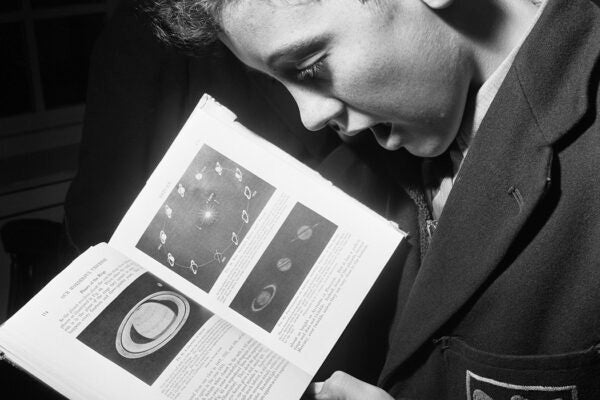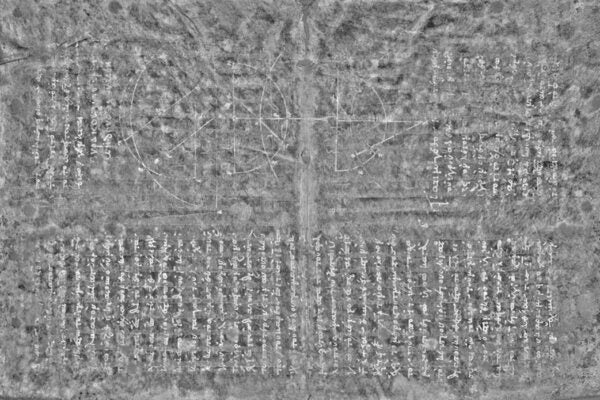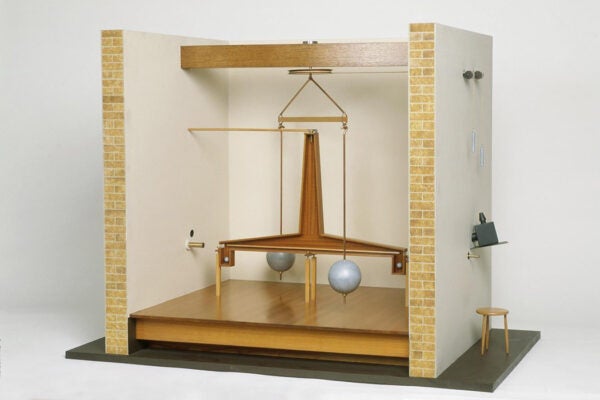Science Lit for Kids Holds a Mirror Aloft
Over decades, books that rouse children’s interest in the natural world have morphed in style and approach—an evolution reflective of tectonic societal change.
Science in War, Science in Peace: The Origins of the NSF
The 1950 establishment of a federal agency devoted to space, physics, and more belied a cross-party consensus that such disciplines were vital to national interest.
Electric Fish and the First Battery
Allesandro Volta invented the voltaic pile, the earliest electric battery, in part because of his investigations into the torpedo, an electric ray fish.
Natural History: A Reading List
This annotated bibliography samples scholarship on the rich—and difficult—history of natural history.
The Moon Might Be Older Than Scientists Previously Thought
A new study shines light on its history.
Science in Defiance of the Tsar: The Women of the 1860s
Sofia Kovalevskaia became the first woman in Europe to obtain her doctorate in mathematics—but only after leaving Russia for Germany.
Archimedes Rediscovered: Technology and Ancient History
Advanced imaging technologies help scholars reveal and share lost texts from the ancient world.
The Strange Experiments of Henry Cavendish
Cavendish was an idiosyncratic scientist who conducted fascinating experiments, such as “weighing” the Earth and splitting water into its constituent elements.
Cloves: The Spice that Enriched Empires
Behind one humble spice lies a complex history of empires and profit, commodities and globalization.
The Seventeenth-Century Space Race (for the Soul)
The astronomical discoveries of the 1600s—such as Saturn’s rings—prompted new questions about the structure of the cosmos and humans’ place in it.









